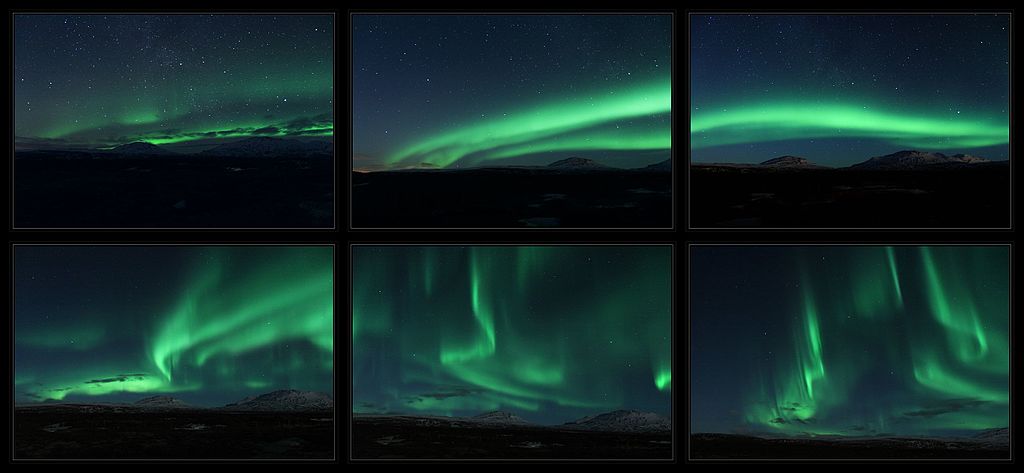Galileo's Error
-
www.penguin.co.uk/books/111/1117019/galileo-s-error/9781846046018.html
-
firewatch-1568609840442.png
Firewatch offers many scenic views of its version of Shoshone National Forest.Credit: Firewatch by Campo Santo. Fair use.Source: Screenshot taken by myselfAurora_shapes-1574138385572.jpg
Polar aurora, Iceland Feb. 2014. Canon EOS 400D, 17mm-f2,8- Iso 1600. First row exposure time 30-20sec, with the naked eye slightly visible. Second row exposure time 4sec., clearly visible.Credit: Schnuffel2002. CC-BY-SA.firewatch-1568609914501.jpg
Firewatch offers many scenic views of its version of Shoshone National Forest.Credit: Firewatch by Campo Santo. Fair use.Source: Screenshot taken by myselfAurora_shapes_1024-1574138451064.jpg
Polar aurora, Iceland Feb. 2014. Canon EOS 400D, 17mm-f2,8- Iso 1600. First row exposure time 30-20sec, with the naked eye slightly visible. Second row exposure time 4sec., clearly visible.Credit: Schnuffel2002. CC-BY-SA.
Reviews
Please sign in or register to add your own review.
Is rudimentary consciousness a fundamental property of matter? The idea strikes many people as bizarre, because it evokes notions of self-aware household objects and tomatoes screaming in pain as they make their way into the pasta sauce. But it deserves more precise articulation and a fair hearing.
In “Galileo’s Error”, philosopher Philip Goff makes the case for this idea, known as panpsychism, for a general audience. He begins by outlining the problems with dualist mind/matter explanations (where the mind is a separate “thing” that somehow interacts with matter), and with strictly materialist explanations that neglect to offer any explanation for the quality of conscious experience.
What if those qualities are the intrinsic nature of matter itself? In this view, the human mind is continuous with the universe in which it is embedded. There’s no need to postulate “special mind stuff”, to invent deities, or to wave your hands and say “emergent property”.
Instead, in this view, subatomic particles like electrons experience change, and more complex forms of consciousness can be built up (or indeed arise) from simple ones. The qualities of human experience—the color red, the smell of coffee, a loving touch—must have their foundations in matter itself.
Of course, this is not a new idea, and many philosophies and religions have embraced forms of panpsychism. It is not even new to Western philosophy, and Goff especially cites the debates between Bertrand Russell and Arthur Eddington. This context is where the book offers what I consider to be the most succinct argument in favor of the panpsychist hypothesis (p. 134):
Eddington’s starting point is as follows:
Physical science tells us absolutely nothing about the intrinsic nature of matter.
The only thing we know about the instrinsic nature of matter is that some of it, i.e., the matter inside brains, has an intrinsic nature made up of forms of consciousness.
It is hard to really absorb these two facts, as they are diametrically opposed to the way our culture thinks about science. But if we manage to do so, it becomes apparent that the simplest hypothesis concerning the intrinsic nature of matter outside of brains is that it is continuous with the intrinsic nature of matter inside of brains, in the sense that both inside and outside of brains matter has an intrinsic nature made up of forms of consciousness.

Aurora Borealis, seen from Iceland in February 2014. The complexity of the nonliving world invites the question whether it is fully discontinuous with embodied human experiences. (Credit: Schnuffel2002. License: CC-BY-SA.)
Yet, current scientific attempts to explain consciousness rarely consider it a phenomenon that is even worth studying outside of the context of a brain. And these “explanations” (e.g., efforts to show that certain neural activity is correlated with certain conscious experiences) are at best predictions—they don’t get us much closer to understanding what conscious experience is.
Goff points the finger at Galileo Galilei for setting science on a path that is strictly quantitative, a path where any effort to explain the quality of an experience (the color red, the smell of coffee, a loving touch) is out of bounds, or at least suspect. Goff argues that to disregard these qualities is to disregard fundamental scientific facts. Indeed, no fact is as foundational and undeniable as the reality of our own conscious minds.
Panpsychism is an attractive hypothesis. Like the many-worlds interpretation of quantum mechanics, it elegantly resolves tricky questions at the very “bottom” of existence. It also has similar difficulties of testability, which could put it in the “not even wrong” realm of speculation. Perhaps, as our ability to predict conscious states increases thanks to efforts like integrated information theory, we will predict them in places where we wouldn’t expect them. Then the more difficult claim to defend may be that “mere matter” is not continuous with conscious experience.
The Verdict
Philip Goff presents a cogent and beautiful argument in defense of a thesis many “materialists” will seek to dismiss as New Age woo. But the idea that consciousness needs no rudimentary precursor in nonliving matter may itself turn out to be woo. Goff does not assert that the panpsychist hypothesis is correct—only that it should be considered seriously in our efforts to understand consciousness.
The book is strongest when it presents this core argument. Goff lost me in the last chapter, where he makes what I consider to be a very weak argument for a non-deterministic universe and the existence of free will. He argues that “free will” is the “responsiveness to rational considerations”, but it’s not clear why a deterministic brain cannot be “responsive to rational considerations”, and why determinism must be a constraint to be “freed” from. Perhaps that is a matter for another book; in any event, it seems out of place in this one.
I recommend Galileo’s Error not as any definitive answer to questions about the nature of consciousness, but as a very well-reasoned argument for expanding the Overton window of science, especially when it comes to explaining the very qualities that make life worth living.
